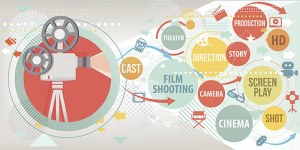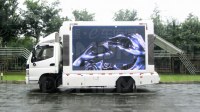What Is Film Lighting Design?
Film lighting design is the process of creating a lighting setup for a film or television production. It involves determining how much light the scene needs, where it should come from, and what kind of equipment is needed to create the desired effect.
For example, if you're shooting a scene in an office building, you might want to make use of natural daylight coming in through windows. But if the camera doesn't move around too much and there aren't many people in the frame, you might want to turn off all of the lights so that you don't have any extra noise on your audio recording.
What Is Stage Lighting Design?
Stage lighting design is the art of creating a mood and atmosphere through stage lighting. Stage lighting can be used to highlight important aspects of a play, or to create an overall feeling or theme.
Theatre lighting designers work closely with the director, actors, scenic designer and sound designer on each play to develop a set of instructions for the crew of electricians who will actually set up the lights during rehearsals.
NOTES FOR TELEVISION STUDIO LIGHTING DESIGN: AVOID "BLACK ZONES" ON TV
''Black area'' refers to the large dark part in the TV picture, which makes the picture appear depressed and empty and affects the broadcast effect of the TV program. Generally speaking, there is no concept of a ''black zone'' in stage lighting, because stage lighting only needs to consider the comfort of the visual picture of the eyes. In the TV studio lighting design, the lighting division should be fully communicated with the director and cameraman, know the perspective and composition of the camera Angle in advance to avoid the ''black zone''.
NOTES FOR FILM STUDIO LIGHTING DESIGN AND STAGE LIGHTING DESIGN: DIFFERENT REQUIREMENTS FOR LIGHTING EXPOSURE
For the exposure problem of film studio lamps and lanterns, the stage requirements are relatively strict, especially the kind of realistic drama that is performed in the frame stage, such as ''teahouse'', ''thunderstorm'' and other drama performances. Lamps and lanterns should be hidden as far as possible, so as to avoid the visual experience of the audience being disturbed by the lighting exposure.
As for television studio lighting design, many studio lamps are directly exposed, because the camera only shoots in a certain area of the studio. As long as the lamps do not appear in the television, it can be accepted.
Notes for Film Studio Lighting: Application of ''Hard Light'' and ''Soft Light''
The use of ''hard light'' and ''soft light'' is a very big difference between studio film lighting design and theatre stage lighting design.
Hard light refers to light with strong directness, the large difference between the shade of the subject, bright highlights and clear shadow edges, such as LED spotlights.
Soft light refers to light with stronger scattering, little difference of illuminated object between light and shadow, softer highlight point, and softer-light shadow, such as LED filming light panel.
On a theatrical stage, a spotlight is usually used as the top light. And if the studio lights use LED spotlights as the top light, it will lead to stiff shadows of people, not suitable for the picture requirements of news or interview programs.
For small and medium-sized studios, the lighting usually requires soft character modeling and do not appear stiff shadow and black area and other phenomena, so we generally use soft-light lamp. The diffuse reflection degree of lamps and lanterns is relatively large. In studio lighting, led soft panel film is usually used for cloth light, side light, etc., while LED spotlight is used as backlight lamps for character modeling.
Sunny Xiao was founded by a group of creative engineers, technicians and designers with 20-year experience in lights industry. We specialized in high-end LED lights. SunnyXiao is a quality-oriented company, and quality has always been our top priority.
Localisation : Room 1505-1506, Block B, Rongchao Binhai Building, No.2021-1 Haixiu Road, Bao'an CBD,Shenzhen 518133 China, 518133 Shenzhen,
Personne à contacter : LI IVAN, 86 0755 23008852










